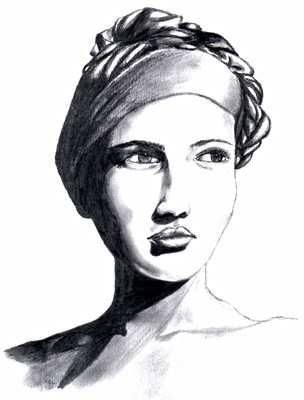All Nonfiction
- Bullying
- Books
- Academic
- Author Interviews
- Celebrity interviews
- College Articles
- College Essays
- Educator of the Year
- Heroes
- Interviews
- Memoir
- Personal Experience
- Sports
- Travel & Culture
All Opinions
- Bullying
- Current Events / Politics
- Discrimination
- Drugs / Alcohol / Smoking
- Entertainment / Celebrities
- Environment
- Love / Relationships
- Movies / Music / TV
- Pop Culture / Trends
- School / College
- Social Issues / Civics
- Spirituality / Religion
- Sports / Hobbies
All Hot Topics
- Bullying
- Community Service
- Environment
- Health
- Letters to the Editor
- Pride & Prejudice
- What Matters
- Back
Summer Guide
- Program Links
- Program Reviews
- Back
College Guide
- College Links
- College Reviews
- College Essays
- College Articles
- Back
Rosa Parks: A Conscience Essay
Born in Tuskegee, Alabama, on February 4, 1913, Rosa Louise Parks did not seem destined for fame. Her mother was a teacher and her father, a carpenter. According to the saying, “Some people are born to greatness, and some have greatness thrust upon them.” Greatness was certainly not thrust upon Rosa Parks, but she found herself up to the challenge. By following her conscience, Parks almost single-handedly initiated a revolution in the United States, a revolution that would eventually secure equal treatment for all black Americans.
Her story starts on the night of December 1, 1955. After work she boarded a bus to take her home. According to the segregation laws, white passengers were given the front seats on the bus. Even if no white riders boarded, African Americans were not allowed to sit in those seats. If white passengers filled their seats, African American riders – who had to pay the same amount of bus fare – had to give up their seats. All of the bus drivers were instructed to have African Americans who disobeyed the rules removed from the bus, arrested, and fined. The seat Parks eventually found was in the middle section of the bus, because the back was filled. A few stops further down the line, a white man got on and demanded a seat. The driver ordered Parks and three other black patrons to move. Parks recognized the driver as one who had evicted her from a bus 12 years before when she refused to reenter through the back door after paying her fare. The other riders did as they were told, but Parks refused to give up her place. The driver threatened to call the police. Parks said, “Go ahead and call them.” She was taken to police headquarters but was released on bail later that night.
“People always say that I didn’t give up my seat because I was tired, but that isn’t true. I was not physically tired, or no more tired than I usually was at the end of a working day. I was not old, although some people have an image of me as being old then. I was forty-two. No, the only tired I was, was tired of giving in.”
The resulting bus boycott by African Americans, led by Martin Luther King, Jr., caused a national sensation. The boycott was a success and led to desegregation in Montgomery and elsewhere in the United States. Over time, Rosa Parks became a national icon of civil rights and African American pride. Known as “the mother of the Civil Rights Movement”, her quiet, courageous act changed America, its view of black people, and redirected the course of history.
Rosa Parks was definitely ‘up to the challenge’. Conscience, the inner sense of what is right or wrong in one’s conduct or motives, impelling one toward right action, was what she followed that brought rewards for herself and for many, many others. I think she is a great example of one who pursued that and changed the world for the better. Her brave act of standing for what she believed to be right has inspired me along with countless others. I hope I can be courageous and always follow my conscience, just like Rosa Parks.

Similar Articles
JOIN THE DISCUSSION
This article has 0 comments.
